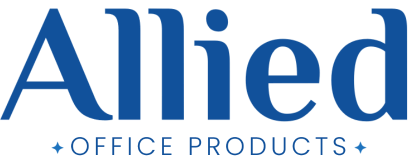Industry News
Navigating Financial Challenges: How to Safeguard Your Business Credit
In the complex realm of business, challenges and crises are not anomalies but realities. Financial upheavals, global health crises, market downturns, and unexpected calamities have proven time and again that a business’s resilience is integral to its survival. One aspect that often feels the brunt during these turbulent times is business credit. The recent Forbes article, “17 Ways to Protect Your Business Credit in a Crisis,” provides a wealth of strategic advice on maintaining a healthy business credit profile during adversities. This discussion is particularly salient for businesses like Allied Office Products, which operate on net-30 accounts, highlighting the necessity of meticulous credit management to ensure uninterrupted operations and sustained growth.
The Innovation of Automated Solutions:
In an era where technology reigns supreme, leveraging automated solutions like “smart contracts” can significantly bolster a company’s financial defenses. These digital contracts execute and enforce themselves, ensuring that parties honor their obligations. This level of assurance is vital for businesses offering net-30 accounts, where timely payments are crucial. By minimizing the risk of late payments or contractual breaches, companies maintain their creditworthiness even when the market is bearish. Additionally, these technologies facilitate smooth, automated transitions in financial activities, reducing the administrative burden during crises.
Building Strong Banking Relationships:
Financial institutions are not just repositories for funds; they are pivotal partners in your business journey. Creating a symbiotic relationship with your bank, grounded in mutual benefit, is a strategic move. It involves understanding your financial statements inside out and having regular, transparent discussions with your banking officer. Such relationships become your financial beacon during crises, guiding you through troubled waters, especially when cash flows fluctuate in businesses operating on credit terms like net-30 accounts.
Strategic Vendor Partnerships as a Buffer:
Crises often strain the supplier-customer dynamics. Here, strategic partnerships can serve as a buffer, particularly for businesses relying on vendor supplies for their net-30 account offerings. Collaborating on a revenue-share basis or renegotiating terms can keep cash reserves from depleting and ensure that operational expenses don’t tarnish your credit score. These alliances, when forged during prosperous times, can be the lifeline that keeps both parties afloat during market downturns.
Transparent Communication: A Creditworthiness Pillar:
When financial storms hit, transparent communication with creditors and suppliers is your business’s life vest. By proactively discussing your financial stance and renegotiating terms, you demonstrate responsibility and foresight, essential for maintaining trust. This trust is the cornerstone of net-30 accounts, where businesses’ credit terms are intertwined with their operational efficacy. Suppliers and creditors are more likely to extend favorable conditions or even waivers when they are assured of your commitment to honoring obligations.
Expert Consultations and Stakeholder Communications:
Safeguarding business credit is not a solitary task. It involves consistent communication with stakeholders and consultations with financial experts. Keeping stakeholders informed fosters trust, crucial during uncertainty. Financial experts, on the other hand, can provide insights into managing credit scores, addressing discrepancies, and optimizing financial health. Regular reviews of credit reports ensure that your business is not blindsided by errors, ensuring that your credit score—a significant determinant in net-30 accounts—remains untarnished.
The Crisis Credit Compass Concept:
Navigating through financial crises requires a “Crisis Credit Compass”—a preconceived strategic plan encompassing trusted advisors, alternative revenue sources, and crisis budgets. This compass is especially beneficial for businesses operating on net-30 terms, directing them through rough patches with precision and reducing reliance on panic-induced decisions. By anticipating financial storms and preparing accordingly, businesses can steer clear of decisions that might compromise their credit standings.
The Prudence of Underutilizing Credit:
Exercising restraint in utilizing business credit is a hallmark of financial wisdom. It involves not stretching your credit facilities to their limits but leaving a buffer for challenging times. When crises strike, these unutilized credit resources can be invaluable. They provide the breathing space needed to strategize without desperate measures like securing high-interest, short-term loans that could impair a business’s credit profile and destabilize net-30 account operations.
Maintaining Robust Cash Reserves:
A fundamental tenet of financial planning is the maintenance of substantial cash reserves. Businesses, especially those dealing with credit accounts, should aim for a reserve that can cover at least six months of operational expenses. This foresight ensures that you can weather financial droughts without defaulting on payments, thereby protecting your credit score. It also affirms to your creditors and clients that your business is a reliable entity, dedicated to sustaining its commitments even in distress.
The Strategic Confluence for Credit Protection:
In sum, shielding your business credit during tumultuous times is a multidimensional effort. It involves a confluence of strategic planning, technological leverage, prudent financial management, and robust communication channels. For businesses like Allied Office Products, offering net-30 accounts, adhering to these strategies is not merely beneficial—it’s essential. These measures collectively ensure that your business remains a credible, trustworthy entity, capable of navigating crises with minimal damage to its credit stature. As we delve into the unpredictable future of global business landscapes, these strategies stand as beacons, guiding entities through uncharted financial territories with confidence and resilience.
For further insights and detailed strategies, consider exploring the full Forbes article: 17 Ways to Protect Your Business Credit in a Crisis.
Disclaimer: This article provides general information. For specific financial advice, please consult with a professional financial advisor or legal expert.

